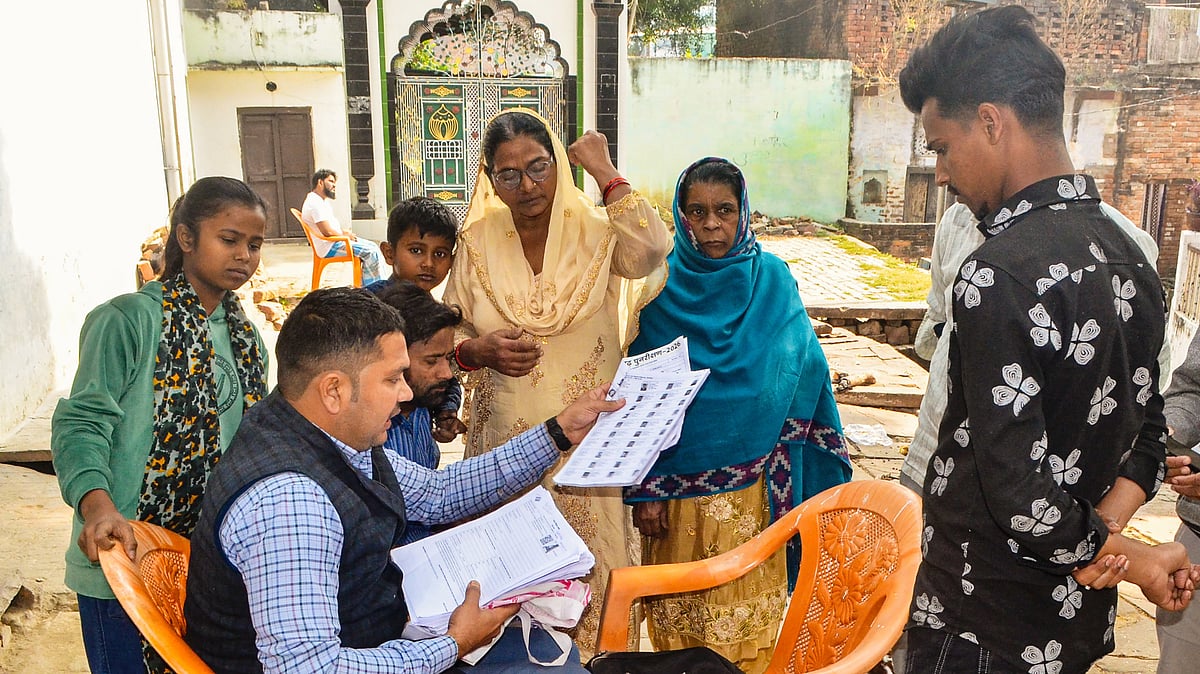POLITICS
SC seeks ECI's response to fresh pleas challenging SIR in Kerala, other states
Kerala-specific pleas to be listed on 26 Nov, petitions concerning UP and other states to be taken up in first or second week of Dec

The Supreme Court on Friday agreed to examine a fresh series of petitions contesting the Election Commission of India’s (ECI) decision to carry out a Special Intensive Revision (SIR) of electoral rolls in Kerala, Uttar Pradesh and several other states, a process that has triggered sustained political criticism nationwide.
A Bench of Justices Surya Kant, S.V.N. Bhatti and Joymalya Bagchi issued notices to the ECI on all newly-filed petitions, each challenging different facets of the SIR on legal, procedural or constitutional grounds. Senior advocate Kapil Sibal, appearing for a petitioner from Kerala, underscored the urgency, noting that local body elections in the state are imminent and that an intrusive revision at this stage could create administrative and electoral complications.
The Bench directed that the Kerala-specific pleas be listed on 26 November, while petitions concerning Uttar Pradesh and other states would be taken up in the first or second week of December. These proceedings will run parallel to an earlier batch of cases already before the Court questioning the very basis, scope and necessity of the ECI’s pan-India SIR exercise.
The SIR, which the ECI says is designed to clean and update electoral rolls, has become a lightning rod for political criticism. Opposition parties argue that the exercise is opaque, rushed and insufficiently consultative, with several warning that it could lead to mass deletions of legitimate voters — particularly among marginalised groups, migrant workers and minorities.
Tamil Nadu’s DMK and CPI(M) have accused the ECI of embarking on the revision without state-level consensus, while West Bengal’s Trinamool Congress has alleged that the SIR could distort the electoral landscape ahead of crucial polls.
Published: undefined
Bihar’s recent experience has sharpened these concerns. The SIR conducted earlier this year in the state drew pointed questions from the Opposition after reports emerged of unusually high numbers of proposed deletions in several districts. Parties claimed that door-to-door verification drives were inconsistent, poorly supervised and vulnerable to local-level bias.
The RJD and Congress argued that the ECI had failed to ensure transparency in how entries were validated or struck off, prompting fears that thousands of genuine voters — particularly those in rural and low-income areas — could be disenfranchised.
The controversy led to demands for clearer guidelines, independent audits and better safeguards to prevent arbitrary deletions, and has since become a reference point for critics warning that similar problems could play out in other states now undergoing SIR.
On 11 November, the Supreme Court had already sought individual responses from the ECI on pleas filed by leaders of the DMK, CPI(M), West Bengal Congress and Trinamool Congress challenging SIRs in Tamil Nadu and West Bengal. These petitions argue that the Commission’s approach bypasses established electoral-roll revision cycles and risks violating constitutional guarantees of free and fair elections.
In states such as Kerala and Uttar Pradesh, petitioners have echoed these objections, adding localised fears: that an extensive revision so close to polls in Kerala may cause confusion on the ground, and that in Uttar Pradesh, the process could disproportionately affect migrant or minority voters.
With the Supreme Court now seized of challenges from across the country, the legality, timing and manner of the SIR exercise will presumably undergo close judicial scrutiny even as the ECI maintains that the revisions are essential to ensure accuracy and prevent electoral fraud.
With PTI inputs
Published: undefined
Follow us on: Facebook, Twitter, Google News, Instagram
Join our official telegram channel (@nationalherald) and stay updated with the latest headlines
Published: undefined